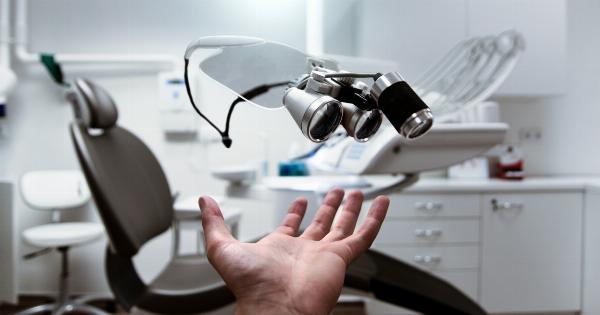Regular dental visits are crucial in maintaining oral health and preventing oral diseases. However, in recent years, there has been a noticeable increase in the prevalence of general diseases, which has indirectly led to a rise in dental visits.
This article explores the various general diseases that have a direct impact on oral health and discusses the reasons behind the increasing frequency of dental visits.
The Connection between General Diseases and Oral Health
Medical research has shown that certain general diseases can have a significant impact on oral health. Here are some examples:.
Diabetes
Diabetes affects the body’s ability to regulate blood sugar levels, which can lead to a compromised immune response. This makes individuals with diabetes more susceptible to oral infections such as gum disease and fungal infections.
To manage their oral health effectively, individuals with diabetes require more frequent dental visits.
Cardiovascular Diseases
Studies have found a link between cardiovascular diseases, such as heart disease and stroke, and gum disease.
As gum disease progresses, bacteria from the mouth can enter the bloodstream and contribute to the development or worsening of cardiovascular diseases. Patients with cardiovascular diseases often have regular dental visits to manage their oral health and reduce the risk of complications.
Osteoporosis
Osteoporosis is a condition that weakens bones and can affect the jawbone, leading to tooth loss. Additionally, certain medications used to treat osteoporosis can cause complications in dental procedures.
This necessitates regular dental visits to monitor and address any oral health issues related to osteoporosis.
Respiratory Diseases
Respiratory diseases, such as chronic obstructive pulmonary disease (COPD) and pneumonia, can have an impact on oral health.
Inflammation and reduced immune response associated with these diseases can increase the risk of gum disease and infections in the oral cavity. Dental visits are crucial in managing oral health for patients with respiratory diseases.
Autoimmune Disorders
Autoimmune disorders, such as rheumatoid arthritis and Sjögren’s syndrome, can cause dry mouth and inflammation of the oral mucosa. These conditions can increase the risk of dental caries and oral infections.
Regular dental visits are essential in monitoring and managing the oral health of individuals with autoimmune disorders.
Reasons for Increased Dental Visits
The prevalence of general diseases plays a significant role in the increased frequency of dental visits. Here are some reasons behind this trend:.
Increased Awareness
As information about the connection between general diseases and oral health becomes more readily available, individuals are becoming more aware of the importance of regular dental visits.
They understand that managing their oral health can contribute to overall well-being and reduce the risk of complications related to their general diseases.
Improved Access to Healthcare
With improvements in healthcare infrastructure, more individuals now have access to regular dental care. This has resulted in an increased number of dental visits, as those with general diseases can seek timely oral health management.
Preventive Measures
Dentists and healthcare professionals emphasize preventive measures for individuals with general diseases.
Regular dental visits allow for early detection and treatment of oral health issues, reducing the risk of complications and improving overall oral health.
Collaboration between Healthcare Professionals
There has been a growing trend of collaboration between healthcare professionals, including dentists and physicians.
This interdisciplinary approach ensures that individuals with general diseases receive comprehensive healthcare, including regular dental check-ups.
Improving Oral Health for Those with General Diseases
To address the increasing prevalence of general diseases and its impact on oral health, it is essential to implement appropriate strategies:.
Education and Awareness
Raising awareness about the connection between general diseases and oral health can encourage individuals to prioritize regular dental visits.
Educational campaigns, public health initiatives, and collaboration between healthcare professionals can play a vital role in disseminating this information.
Oral Health Guidelines for Medical Professionals
Medical professionals should be equipped with oral health guidelines specific to general diseases.
This will enable them to provide accurate information and recommendations to individuals, emphasizing the importance of regular dental visits and oral hygiene practices.
Integrated Healthcare Systems
Implementing integrated healthcare systems, where dental care is an integral part of overall healthcare, can ensure individuals receive comprehensive treatment.
This approach would involve collaboration between dentists, primary care physicians, and other specialists to address the oral health needs of individuals with general diseases.
Research and Innovation
Continued research and innovation in the field of dentistry can lead to the development of advanced diagnostic tools, treatment options, and preventive measures specifically tailored to individuals with general diseases.
This will enhance the overall oral health management of this population.



























